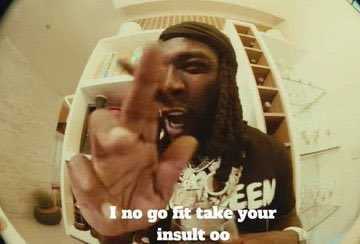Election season in Nigeria is always bound to be entertaining with everyone on the edge of their seats.

Candidates are the stars of the show and are always under pressure to pull everything out of their arsenals to get people to vote for them.
They can be hairdressers:
Groundnut hawkers:
Agbado tasters:
Or whatever the heck is going on here:
It’s all a part of the game. But there are a few things these candidates aren’t allowed to do to win, according to the Electoral Act.
No insults
This one is funny because one-third of what election candidates in Nigeria do is insult their opponents. One 2023 presidential candidate has already said an opponent is suffering from memory loss, which sounds like an insult to us.

But the Electoral Act frowns against candidates using abusive and slanderous language against one another.
No religious or tribal provocations
The law also prohibits political campaigns from using provocation of religious, ethnic, tribal or sectional feelings as a strategy to win.
Can’t campaign in religious places
This one may sound surprising because candidates already do it all the time, but it’s illegal to run political campaigns in religious centres like churches, mosques or shrines.
Can’t use police stations for campaigns
The same law applies to using police stations for political campaigns. But who wants to campaign at a police station anyway?
Can’t use masquerades
The government must not want masquerades to eat good from the election buffet because candidates aren’t allowed to hire them for campaigns.
Can’t train and use thugs
This one would seem kind of obvious but we understand why it had to be written down in plain terms because we’re talking about Nigerian politicians here.
Candidates aren’t allowed to use thugs to help them rig elections convince voters.
Threaten others into submission
The goal of an election campaign is to convince voters you’re the best choice. The law says you can’t directly or indirectly threaten voters to get their support.
The Electoral Act recommends a maximum fine of ₦1 million or one-year imprisonment for any candidate that violates these guidelines. And we can’t wait to see how many Nigerian politicians will end up behind bars if they’re implemented.
ALSO READ: The 2023 Presidential Campaign Promises We Already Find Laughable




